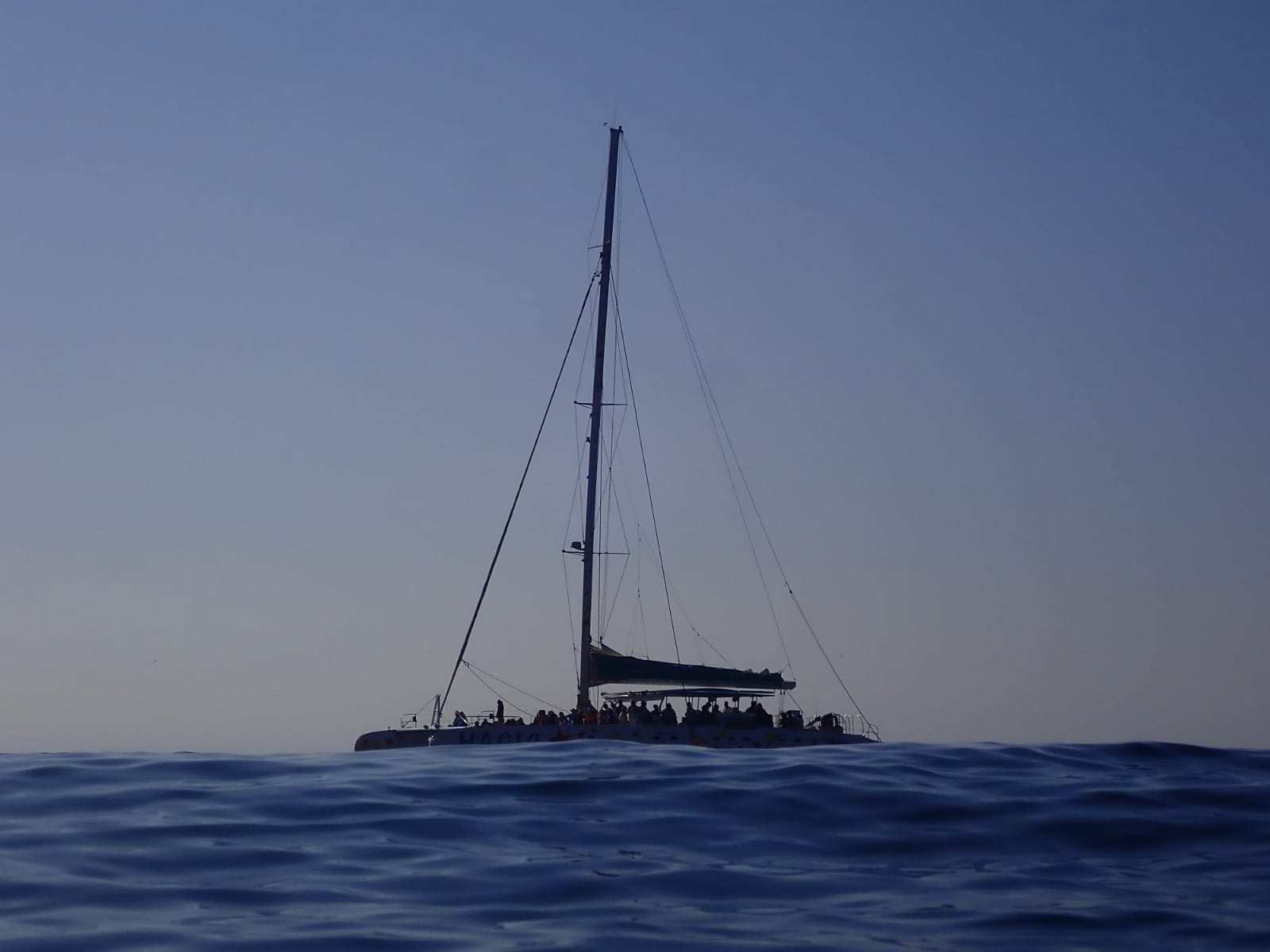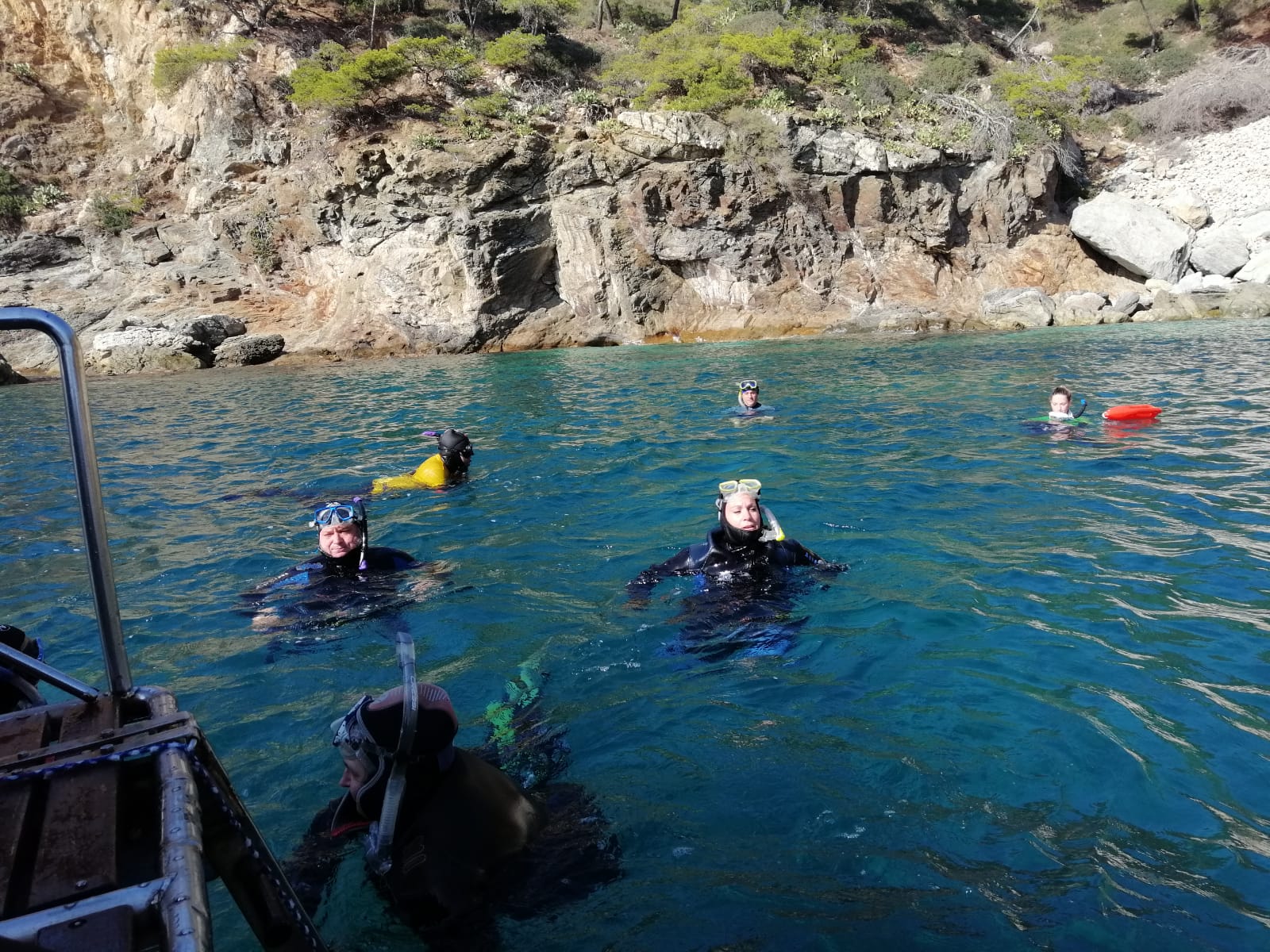Other activities carried out during the project

Sea outing with a catamaran in Cap de Creus Natural Park
On 29th September 2019, a pilot project on the potential health benefits of recreational activities at sea was held on board a catamaran. This was within the framework of the MedPAN project and the II Sea and Health Day organized by the Oceans & Human Health Chair in Roses. About 100 people of various ages (from 7 to 85 years old) participated in the two-part activity: First, researchers gave an informal talk while sailing towards the Cap de Creus Natural Park. The talk outlined existing evidence of the health benefits of several types of recreational activities at sea (this evidence derived from the preliminary conclusions of the MedPAN project); and second, after a short technical briefing from the instructors on board, participants went swimming and/or snorkelling in an inlet in the Natural Park together with the instructors accompanying the group. This experience at sea is used as a preliminary step, and future action will be taken to evaluate the potential health benefits of sailing, swimming and snorkelling in a marine reserve.

Potential health benefits of snorkelling for patients suffering from cancer
Within the research topic 'Oceans and Human Health', several studies have valued how marine ecosystems contribute to health. The main line of research focuses on the study of how activities related to the sea (swimming, snorkelling, diving, kayaking, or even walking near the coast) can contribute to the health and well-being of those who do them. The majority of studies conducted so far have assessed the degree to which healthy people benefit from leisure activities at sea (either in the water or with contact or near the sea) in terms of physical and mental health. Nevertheless, it remains largely unknown whether patients suffering from other illnesses reap the same benefits.
Therefore, within the framework of the MedPAN project, and in collaboration with Poseidon Diving Centre, doctors and biologists belonging to various institutions: the Oceans and Human Health Chair of Sea Health at the University of Girona; the Catalan Institute of Oncology (ICO), and the Primary Care Centre (CAP) in Roses (Catalan Health Institute), and Roses Against Cancer Foundation have developed a pioneering test to assess whether snorkelling (observing marine flora and fauna using a snorkel and goggles, and without air bottles) can contribute to the wellbeing of patients with, or who have had, cancer. The first test consisted of a questionnaire distributed on board. Various standardized questions were aimed at evaluating patients’ feeling of well-being before and after snorkelling.
The activity took place on October 5th 2019 in the water at Cap de Creus Natural Park. Participants were jointly selected by professionals from Roses CAP and the ICO with the assistance of Roses Against Cancer Foundation. 6 patients agreed to participate in the pilot project: 5 women and 1 man aged between 29 and 59 years old diagnosed with breast cancer, thyroid cancer and testicular cancer. Validated questionnaires contained 20 questions to assess whether and how snorkelling brings feelings of well-being to cancer patients.
Before setting out to sea, patients had previously filled in the first section of the questionnaire. Once they reached the snorkelling site, the patients carried out the activity accompanied by snorkelling instructors, doctors and marine biologists from the research team. The activity lasted about 45 minutes. The patients were provided with a snorkel and goggles, fins and a 5-7mm thick wetsuit. The sea temperature was about 21° C, and wind speed approximately 20 km / hour (however, note that the inlet where the activity took place was sheltered from the wind). At the end of the snorkelling session, patients filled in the post-activity section of the questionnaire, which contained 20 more questions.
Two weeks after the snorkelling session, the patients participating in the activity met with doctors and UdG researchers at Roses Primary Care Centre and created a focus group. The aim of this focus group was to explore the snorkelling experience through open discussions in order to determine the outcomes that could be expected if snorkelling was offered to a larger population. This type of qualitative research involved interviewing a group of patients about their perceptions, opinions, beliefs, and attitudes towards using snorkelling as an activity to improve their wellbeing. Questions were posed to the group and participants were free to talk with other group members. Doctors and researchers took notes and recorded the discussions.


















